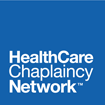When Care is Tough: Supporting the Interdisciplinary Team
Course Author: Brian Hughes, BCC
This course, When Care is Tough: Supporting the Interdisciplinary Team, focuses on why chaplains and spiritual care providers should intentionally emphasize care for staff. We will look at how chaplains and spiritual care providers can create a calming and peaceful presence amidst what is often a chaotic and intense clinical environment. We will also look at some ways chaplains and spiritual care providers can seek to provide rituals that will be meaningful to staff who are of different religions, and none. We will also then be looking at the need for chaplains and spiritual care providers to provide staff care. Topics such as compassion fatigue, burnout, vicarious trauma, and moral injury will all be defined and discussed as it relates to employees working in healthcare. We will also then look at some specific programs and interventions chaplains and spiritual care providers can use when working with staff – some tools in the chaplain and spiritual care provider’s belt. Finally, we will learn about other institutional resources available to staff, and how chaplains and spiritual care providers can encourage their use.
By the end of this course the learner will be able to:
- Identify methods to provide calm and calming presence to the interdisciplinary health care team in the midst of crisis and stress.
- Describe a procedure for providing rituals when needed for staff using materials that are inclusive of all beliefs and non-beliefs.
- Understand the impact of compassion fatigue, vicarious trauma, or burnout and how to facilitate supportive one-on-one and small group conversations with staff experiencing these issues.
- Understand and articulate what resources, such as employee assistance programs, are available.
Course Outline
- Introduction to Staff Care
- How to be an agent of peace in the midst of chaos
- Meaningful rituals for staff
- The need for staff care
- Additional Resources
- Summary
- References
Number of Continuing Education Hours: 25
Credit towards Board Certification Requirements: 1
Aligns with the following Quality Indicators in What is Quality Spiritual Care in Health Care and How Do You Measure It? (HCCN. 2016).
- Structural Indicator 1.A. Chaplains as certified or credentialed spiritual care professional(s) are provided proportionate to the size and complexity of the unit served and officially recognized as integrated/embedded members of the clinical staff.
- Process Indicator 2.A. Specialist spiritual care is made available within a time frame appropriate to the nature of the referral.
- Process Indicator 2.E. Families are offered the opportunity to discuss spiritual issues during goals of care conferences.

